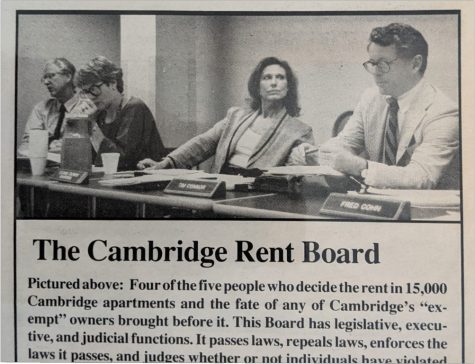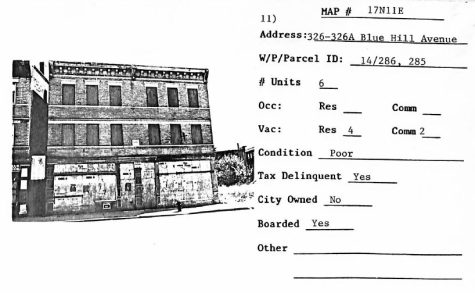
Landlords feared the rent board.
Landlords were expected to pay for repairs upfront.
Afterwards, they would present receipts to the rent board.
The rent board was under no obligation to say yes.
Many landlords were wrongly delayed or denied.
“A fridge would break down, you’d have to go out and buy a new refrigerator.
“It would take you three to six months to get a decision whether or not you could get more money because you put a new refrigerator in there.”
Few even tried.

Lower rent turned into lower maintenance.
One study of Manhattan rent controlled buildings showed that a 3% savings on rent was offset by a 2% reduction in maintenance.
In older buildings, rent-controlled pre-War units were nearly 9% more likely to be unsound than their uncontrolled counterparts.
In 1985, Boston Mayor Raymond Flynn ordered a survey of all the boarded up properties.
![A scan of a property at 503 Blue Hill Avenue in Roxbury shows a property with four residential units reported. The three-story building has been boarded up. Information to the side of the photograph reveals the auditor found the building to be in fair condition, tax-delinquent and not city-owned.]](https://rentcontrolhistory.com/wp-content/uploads/2023/12/Roxbury-Blue-Hill-Ave-1-Lic-public-domain-city-of-Boston-report-for-mayor-Raymond-Flynn-1985-475x287.jpg)
Hundreds of buildings were abandoned.
Thousands more were left vacant, waiting for an end to rent control.
“Before rent control ended in Boston…there were 10,000 vacant units. It was just crazy,” said Jim Regan.
“I don’t know who made out on it at all. The tenants sure didn’t. The landlords didn’t.”